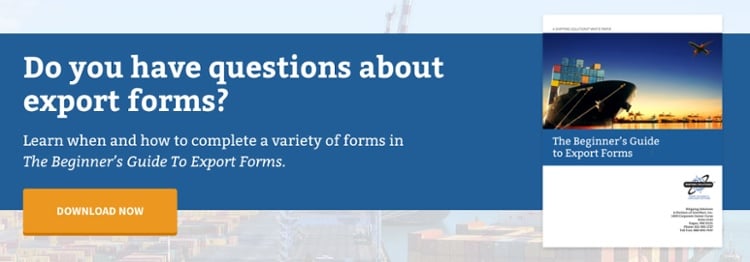The International Trade Blog International Sales & Marketing
Soybeans Sold on Letter of Credit Go Bad: Who's at Fault?
On: April 4, 2016 | By:  Roy Becker |
2 min. read
Roy Becker |
2 min. read
 An exporter in the U.S. submitted a bid to supply $6.5 million in soybeans to a buyer in the Middle East. The exporter was required to post a bid bond equal to two percent of the bid amount, or about $130,000.
An exporter in the U.S. submitted a bid to supply $6.5 million in soybeans to a buyer in the Middle East. The exporter was required to post a bid bond equal to two percent of the bid amount, or about $130,000.
Since the buyer in the Middle East agreed to accept a standby letter of credit instead of a bid bond, the exporter asked a U.S. bank to issue the standby letter of credit. The bank agreed, and the exporter received the contract.
After signing the contract, the exporter posted a performance bond equal to 10 percent of the contract. Again, the bank issued a standby letter of credit, this time for $650,000. The standby letter of credit was payable upon receipt of a statement from the buyer that the exporter had failed to complete the transaction according to the terms of the contract.
The buyer, in turn, opened a letter of credit for $6.5 million to the exporter payable against presentation of a charter party bill of lading. A charter party bill of lading represents a document issued by a shipping company that contracts to ship the goods from point A to point B. The vessel does not have a schedule of ports or dates as a conference vessel does. In most cases, the chartered vessel carries only one shipment; in this case, filled with soybeans.
The parties agreed to the Incoterm FOB New Orleans. After the exporter had loaded the goods, they presented the required documents and received $6.5 million from the bank that had issued the letter of credit.
One month later the buyer demanded a $650,000 payment from the standby letter of credit, which had been a performance bond. Surprisingly, the buyer claimed the goods did not meet the contract specifications, stating they had deteriorated in quality from excess moisture.
The exporter, of course, denied responsibility, asserting the goods met specifications when they arrived at the port but deteriorated while in storage at the dock. The vessel, which was chartered by the buyer, arrived two weeks after the agreed upon delivery date. If the buyer had scheduled the vessel to arrive on the agreed upon date, the exporter argued, the goods would not have deteriorated.
Who Was at Fault?
This is an example of the use of an Incoterm, which made the exporter responsible for loading the goods (FOB), but not for contracting the vessel. The good news: the buyer retracted its payment demand after the exporter’s bank loan officer traveled to the Middle East to negotiate a deal and thus avoid a potential legal standoff.

About the Author: Roy Becker
Roy Becker was President of Roy Becker Seminars based in Centennial, Colorado. His company specialized in educating companies how to mitigate the financial risk of importing and exporting. Previous to starting the training company, Roy had over 30 years experience working in the international departments of several banks where he assisted many importers and exporters with the intricate banking needs associated with international trade.
Roy served as adjunct faculty in the International MBA programs at the University of Denver and University of Colorado in Denver. He conducted seminars at the World Trade Center Denver and The Center for Financial Training Western States, and was a guest lecturer at several Denver area Universities.
Roy retired in 2021.


